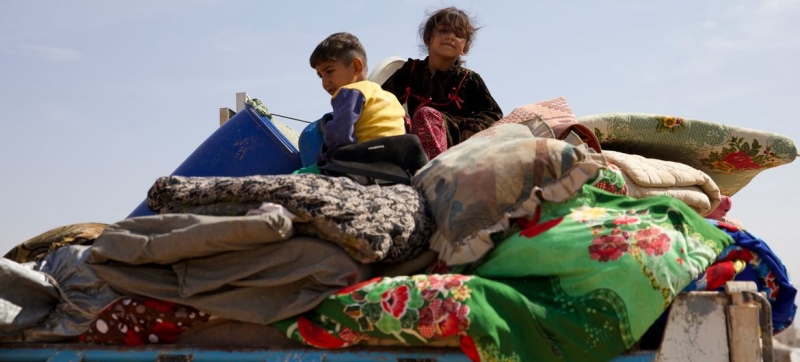
A Syrian family flees violence in the Idlib region. Regional tensions deepen humanitarian crisis in Syria Peace and Security
The Syrian population finds itself in a very difficult situation, UN Special Envoy for Syria Geir Pedersen and UN Office for the Coordination of Humanitarian Affairs (OCHA) Representative Ramesh Rajasingham told members of the Security Council.
“The events of recent weeks have become a stark warning of how real the threat of escalation of the regional conflict is. This will have devastating consequences for the Syrian people,” said OCHA Director of Coordination Ramesh Rajasingham, speaking on behalf of Under-Secretary-General for Humanitarian Affairs Martin Griffiths.
60~h2 class=”text-align- justify”>Humanitarian crisis
A series of attacks across Syria in recent weeks have killed and injured civilians, including children and aid workers, he said. In addition, Syria faces serious challenges related to explosive remnants of war, the OCHA spokesman noted. In addition to the threat to human life and the negative impact on agriculture, landmines and unexploded ordnance impede the safe delivery of humanitarian aid.
Climate shocks still further aggravating the situation: severe floods in Idlib and northern Aleppo affected more than 15 thousand internally displaced people. Rajasingham stressed that as summer approaches, the risk of drought increases, as does the spread of cholera and other diseases.
OCHA’s representative noted funding shortfalls that threaten the delivery of essential services. Palestinian refugees affected by the Syrian crisis are also facing aid cuts.
Rajasingham emphasized the importance of humanitarian action through all available means, including cross-border operations, and the need for a political solution to end the conflict: without such a solution, the humanitarian crisis will continue.
Detentions and violence
UN Special Envoy for Syria Geir Pedersen expressed deep concern about the recent escalation of regional tensions. He stressed the need for de-escalation and compliance with international law to protect civilians. In particular, a ceasefire in Gaza is a priority.
Pedersen noted the difficult conditions facing Syrians, including economic hardship, gender-based violence and arbitrary detention.
“Children, women and men of all ages across Syria continue to be subjected to unlawful, arbitrary detention, forced conscription and separation from their families. There continue to be reports that detainees are deprived of food and medical care, subjected to torture and sexual violence in all areas of Syria,” the Special Envoy said.
In addition, Pedersen drew attention to increased drug smuggling and use in Syria, further exacerbating the conflict and its humanitarian consequences. He called for greater access to humanitarian aid in the country, while emphasizing the need to mitigate the impact of sanctions on ordinary Syrians.
Read also:
